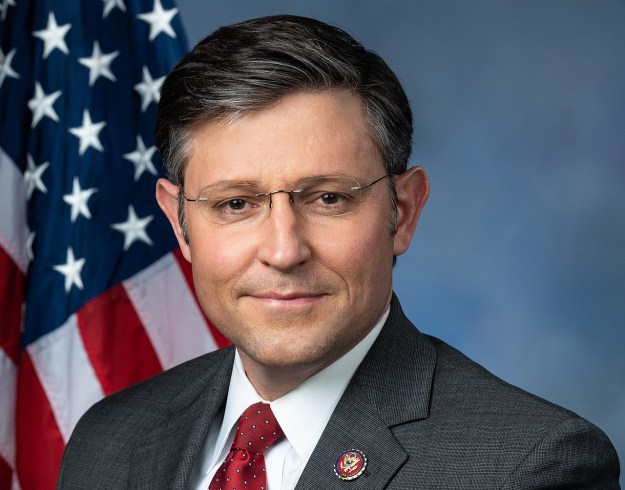By Paul V. DeMarco
Guest Columnist
EDITOR’S NOTE: Paul sent me this the same day as the one about Dr. Ceriani, but I held it a couple of days to space them out a bit. When he sent it, he noted that this would be “more is your wheelhouse — genealogy and travel.” Indeed.
I just turned 62 and have traveled internationally as an adult three times in my life, all in the last 5 years (Tanzania with the USC School of Medicine in early 2020, just before COVID, and Italy and Sicily in 2022 and again in April 2025). Looked at one way, I am exceptionally lucky. Even one trip out of my own country is more than the vast majority of the world’s people are afforded. I have carried that knowledge with me on each trip and hope to continue to hold it close. I never want to lose the wonder I feel as a jet first leaves the ground or as I navigate a foreign land where I feel the obligation to represent my homeland well.
Being an amateur (and sometimes absent-minded) traveler does have its downsides. There was the time I tried to go through security with a Swiss army knife in my backpack. On the 2022 trip I left my laptop in the Rome airport (happily, I was finally able to retrieve it months later). And on this last trip we had an overnight layover in London coming home, but our luggage got checked through to our final destination (Charlotte). The silver lining was I didn’t have any difficulty picking out my outfit for the next morning’s flight home.
This last trip to Sicily was especially meaningful for two reasons. First, I had a merry band of companions – my wife, my son and daughter, and their spouses. Second, I was able to visit my grandfather’s birthplace for the first time.
My grandfather, Poppy, was born in 1903 in Porto Empedocle, a suburb of Agrigento, a city of about 55,000 on the southern coast of Sicily. The city is built on a ridge overlooking the azure blue waters of the Mediterranean and is home to some of the most well-preserved Greek temples in the world. We had a picture of his home that Poppy’s son, my father, had taken on a previous trip and a street name, but not a house number. Our driver took us to the high end of the street. We had a beautiful view of the sea, but I thought we should have started at the other, lower end.
As we exited the van, I had resigned myself to not finding the house. It would be enough to say that I had walked on the same street as he had. Like many Sicilians of his generation, he gambled that life in America was worth leaving everything he knew, making a transatlantic voyage, and staking a claim in the new world. At the conclusion of his journey, he sailed by the Statue of Liberty to Ellis Island. He spent the rest of his days in her shadow in a duplex nestled in an Italian neighborhood in the Flatbush neighborhood of Brooklyn. He married a first-generation Italian woman (my grandmother, Rosalie), worked as a barber, and had a side business repairing radios in the basement of their home.
As I was taking in the landscape of my ancestral home, my son had walked on ahead. “I think that’s it,” he said, pointing. We had found it. The feeling that I had then, and that I have now as I write about the moment is both precious and curious to me. It looked just like the picture my father had given me. I suspect, if I had done some research, I could have found it on Google Maps street view and seen it without ever leaving home. But blood ties are powerful and inescapable. There is nothing that could replace my being there, nor replace being home but knowing I have been there.
Even meeting people who were not closely related to me, but were my people, felt electric. In a raucous street market in Catania, on the eastern coast of Sicily, my wife, Debbie, made friends with a small dog. The dog (whose name. we soon learned, was Charlie), was accompanied by his elderly owner (Salvatore) and his dark-haired, dark-eyed granddaughter (whose name, unfortunately, we didn’t ask for). Let’s call her Sophia. Salvatore spoke no English, but we were able to converse with Sophia in a mix of her broken English and my feeble Italian. When she translated our question about how long Salvatore had owned the dog, tears rolled down his face as he kissed the dog again and again to indicate how much he loved him. As the two of them departed he kissed Debbie and me. For any readers planning on travelling to Sicily, be prepared – Sicilians do kiss a lot. I received many double-cheek kisses, both from women and men.
My family teases me for all the pictures I take on vacation. I probably took more than two thousand on this trip. But I am glad I took a selfie with the four of us and the little dog he loved so much. I have loaded that photo, pictures of Poppy’s birthplace, and many others from the trip on my digital frame. Those images are not just preserved in the dim file of my memory but are available to me as I walk by the frame, in vibrant color and astonishing detail.
I hope to return to Sicily many more times, but I want always to maintain my perspective as an inexperienced traveler.
A version of this column appeared in the May 14th edition of the Post and Courier-Pee Dee.


































